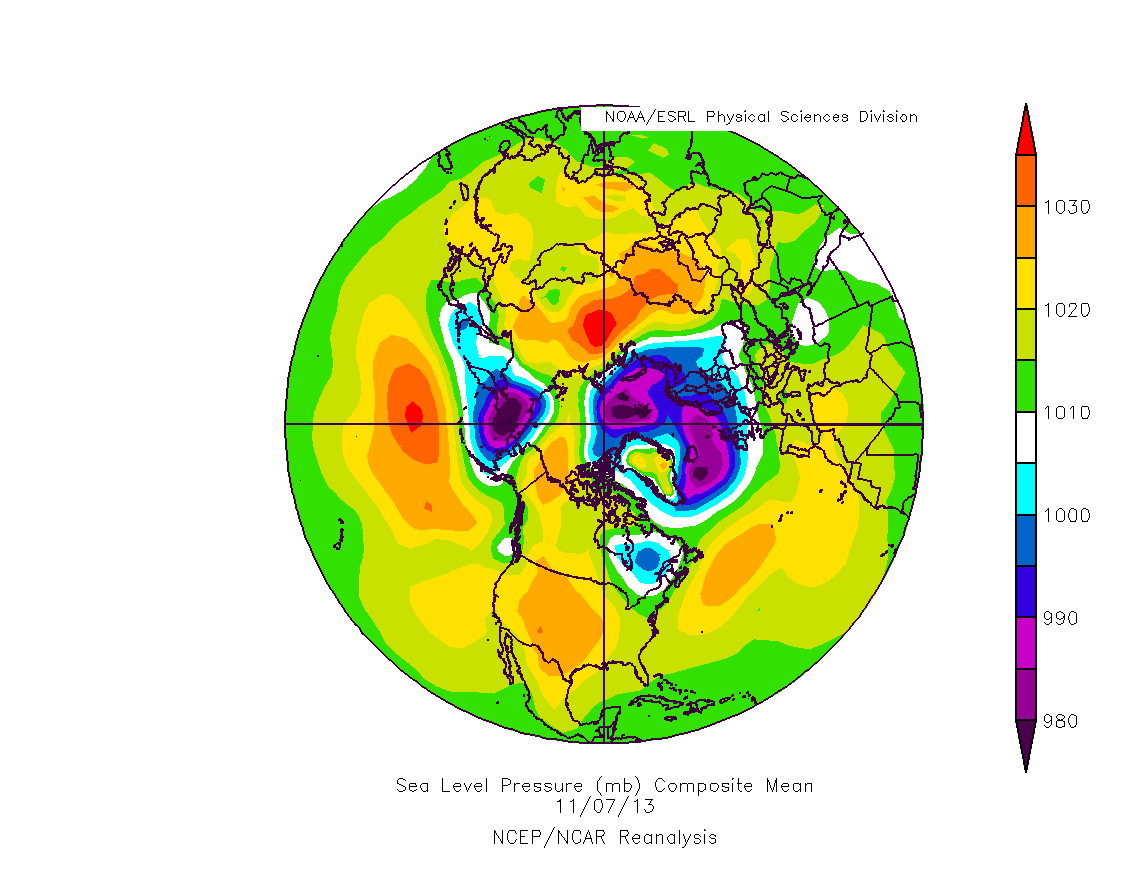Viddaloo,
1) You have one day of actual PIOMAS volume reduction on a day to day basis. The rest you seem to base your claim of a volume loss is actually an
anomaly of volume. In both graphs you present it is stated that volume is 'relative to 2002 to 2013 Volume and Extent'. So your claimed volume loss is not necessarily a loss of volume, it is actually a period where the autumn volume gain is less than the 2002 to 2013 average, and
might have a real terms loss as a causal factor.
But as I show, only one day shows a day on day volume loss.
2) Meaningless.
3) You state in the above comment:
..if you read my actual words, I'm not saying CH4 caused it directly, only that it happened simultaneously.
Let me make clear what you actually said. Upthread various people were discussing cyclone Nuri. You then said:
Don't think Nuri is the only one to blame here: Notice the sharp increase in mean CH4, and the subsequent decrease in refreeze (both extent and volume). Also note the sharp fall in 2013 extent and volume, following a 2600 ppb CH4 event last year
From the available evidence it is clear that you were drawing a causal link between the CH4 and ice loss.
4) And there have never been other blips of high methane? The coincidence of two factors once is not proof.
I have made available the volume data you needed to address where the volume loss came from.
http://dosbat.blogspot.co.uk/2013/12/regional-piomas-volume-data.htmlRather than use this resource you choose to launch a barrage of insults against me. Insults I can take, but your laziness in doing the ground work for your own theory means I have to make time available to do your work, that I find
very annoying.
So here it is.
Using the regional breakdown of daily PIOMAS gridded data here is the daily difference between 6th and 7th of November, in km^3.
Other 0.001
Okhotsk -0.105
Bering 0.180
Beaufort 11.060
Chukchi -7.784
ESS 1.846
Laptev -9.457
Kara -34.590Barents 0.741
Greenland 2.550
Central 8.091
CAA 10.474
Baffin 8.826
Hudson 3.451
Most of the drop comes from Kara, at which point you're probably jumping up and down saying 'Yes I was right, it is methane!!!!' and then you'd stop.
Knowing that NCEP/NCAR data is used to drive PIOMAS I look at NCEP/NCAR data for 7th November.

And I find a warm tongue of air that is indeed warmer than freezing thus makes actual melting possible. So I have identified that export and melt through Fram or Bering is not at play, and that actual melting was involved.
Had you got this far you'd have stopped, being satisfied that the warming was due to methane. I dig deeper, because I have had my own fingers burnt before by jumping to conclusions (which doesn't guarantee that won't happen again!).
I look at that tongue of warming over Kara and immediately suspect a dipole. So I look at pressure.

And yes indeed, we see a strong dipole with high pressure over western Siberia and a low over Barents, that draws in warmer air from outside the Arctic and is a reasonable candidate as the main cause of the volume loss that is the only day to day November volume loss in the PIOMAS data record.
The irony of it all is that had you approached my list in a constructive manner, even being humble enough to ask for help, I'd have gladly given such help to the best of my meagre amateur abilities. Asking proper professional scientists for help when I need it is one of the techniques I use for learning, and it works. If I approach a scientist with questions, ideally phrased from the point of view of 'how can
I sort this out', showing I am not wanting to be spoon-fed but am prepared to work for my knowledge, I have found on every occasion that help has been willingly given. And the scientists I am in regular contact with are pleased to see amateurs with enthusiasm for their work.
But were I to storm in telling them how they're wrong and I'm right, and answering every attempt to guide with beligerence and abuse I would get nowhere.
And nowhere is where you are with me. I have had enough of you. I hope the moderators don't get twitchy with the 'ban button'. Feel free to stick around here, you might learn, both about sea ice and human interaction. But please understand that my patience is now stretched beyond its limit. I have no interest in
any interaction with you from now on.